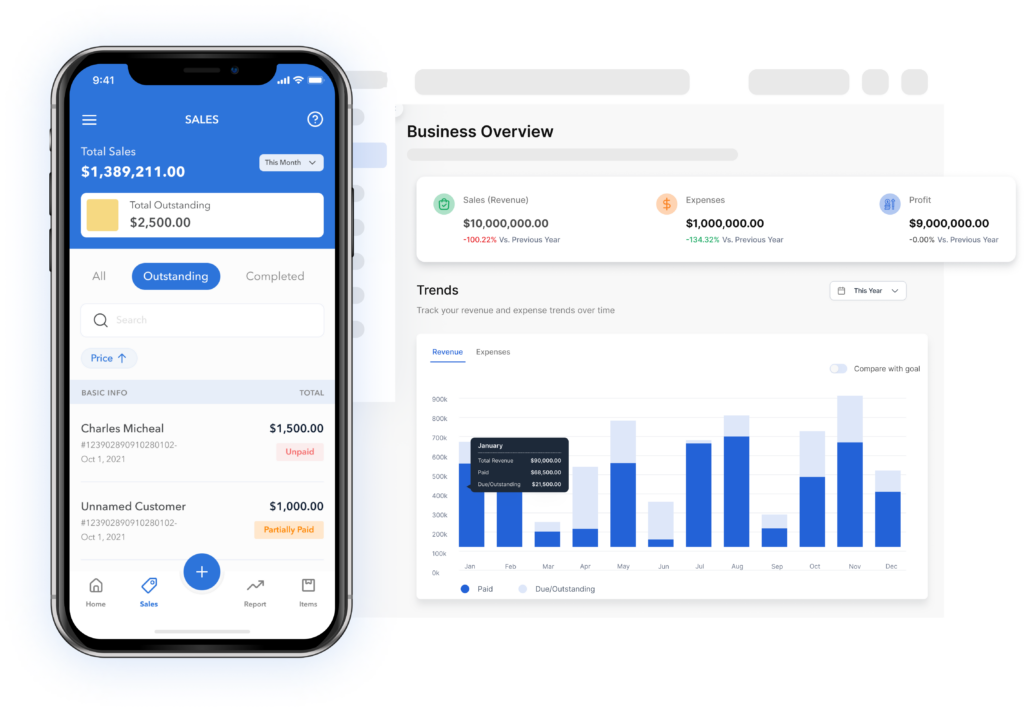Running a successful retail business involves more than just selling products; it requires the efficient management of various interconnected processes. These processes, collectively known as retail operations, encompass multiple activities contributing to a retail establishment’s smooth functioning and profitability. This guide will cover retail operations, key aspects, challenges faced by retailers, and strategies to overcome them. It will also discuss how Vencru can assist in this process.
What are Retail Operations?
Retail operations refer to the intricate web of activities and processes in managing and running a retail business. From inventory management and sales transactions to customer service and supply chain coordination, retail operations encompass all the tasks necessary to ensure the delivery of products or services to customers.
What are the Key Aspects of Retail Operations?
Retail operations encompass several vital aspects, each contributing to the overall success of a retail business. These key aspects include:
- Inventory Management: Efficiently managing inventory levels, stock replenishment, and product availability to meet customer demand while minimizing stockouts and overstocking.
- Sales and Customer Service: Providing exceptional customer experiences through personalized interactions, efficient sales transactions, and effective problem resolution.
- Supply Chain Management: Coordinating with suppliers, managing orders, and ensuring timely deliveries to maintain a consistent flow of products.
- Point of Sale (POS) Systems: Facilitating smooth and secure sales transactions, capturing sales data, and managing payment processes.
- Employee Management: Hiring, training, and scheduling staff to ensure adequate coverage and exceptional customer service.
- Marketing and Promotions: Creating and executing marketing strategies, promotions, and campaigns to attract and retain customers.
- Order Fulfillment: Efficiently processing orders, managing shipments, and ensuring accurate and timely customer delivery.
- Loss Prevention: Implementing measures to prevent theft, fraud, and inventory shrinkage.
- Analytics and Reporting: Analyzing data to gain insights into sales trends, customer behavior, and operational performance.
What are the Challenges Associated with Retail Operations?
Despite their crucial role, retail operations have their fair share of challenges. These challenges can impact a retail business’s efficiency, profitability, and success. Some common challenges across critical aspects of retail operations include:
Inventory Management:
- Stockouts and Overstocking: Finding the right balance between having enough inventory to meet demand and not having too much stock is always difficult.
- Demand Forecasting: Accurately predicting customer demand and adjusting inventory levels can be challenging, leading to understocking or overstocking.
- Seasonal Variability: Managing inventory for seasonal products or fluctuating demand can result in inventory turnover and storage challenges.
Supply Chain Management:
- Supplier Relationships: Maintaining good relationships with suppliers, ensuring timely deliveries, and managing supplier performance can be complex.
- Logistics and Transportation: Challenges in coordinating and optimizing transportation for inbound shipments can lead to delays and increased costs.
Sales and Customer Service:
- Inconsistent Customer Experience: Ensuring consistent and high-quality customer service across different store locations or online channels can be challenging.
- Employee Training: Training staff to provide excellent customer service and product knowledge is ongoing.
Point of Sale (POS) Systems:
- Technical Glitches: POS system downtime or technical issues can disrupt sales transactions and customer experiences.
- Data Security: Protecting customer payment information and sensitive data from breaches and cyberattacks is a growing concern.
Employee Management:
- High Turnover: Retail often experiences high employee turnover rates, requiring continuous hiring and training efforts.
- Scheduling: Creating optimal employee schedules that align with peak shopping times while controlling labor costs can be challenging.
Marketing and Promotions:
- Promotion Effectiveness: Measuring the impact of marketing campaigns and promotions on sales and customer engagement can be complex.
- Competition and Differentiation: Standing out in a crowded market and effectively communicating unique value propositions can be challenging.
Order Fulfillment:
- Efficient Fulfillment: Ensuring timely and accurate order fulfillment, especially during peak seasons, requires streamlined processes and resources.
- E-commerce Integration: Integrating online and offline order fulfillment systems can be technically challenging.
Returns and Exchanges:
- Complex Return Processes: Managing returns and exchanges while adhering to return policies and minimizing fraud can be a logistical challenge.
Loss Prevention:
- Shrinkage: Reducing theft, fraud, and inventory shrinkage requires implementing effective loss-prevention strategies.
Analytics and Reporting:
- Data Accuracy: Ensuring accurate data collection and analysis to make informed business decisions and prevent discrepancies.
Technology Integration:
- System Integration: Integrating various technology solutions across different aspects of operations can lead to technical compatibility issues.
Compliance and Regulations:
- Legal Changes: Keeping up with changing regulations, such as tax laws and labor regulations, requires ongoing vigilance.
What are the Ways Retail Operators Can Mitigate These Challenges?
To address the challenges inherent in retail operations, proactive strategies and best practices can be implemented:
Inventory Management:
- Utilize inventory management software to track stock levels, forecast demand, and automate reordering processes.
- Implement a just-in-time (JIT) inventory strategy to minimize overstocking and stockouts.
- Conduct regular inventory audits to identify discrepancies and optimize inventory accuracy.
Supply Chain Management:
- Cultivate strong relationships with reliable suppliers and communicate effectively to ensure timely deliveries.
- Implement a robust supply chain management system to track shipments and manage logistics efficiently.
- Diversify suppliers to mitigate risks and reduce dependency on a single source.
Sales and Customer Service:
- Train staff to provide exceptional customer service and product knowledge.
- Implement customer relationship management (CRM) systems to track customer interactions and preferences.
- Monitor customer feedback and reviews to identify areas for improvement.
Point of Sale (POS) Systems:
- Invest in reliable POS systems with backup solutions to prevent downtime.
- Regularly update and maintain POS software to ensure security and optimal functionality.
Employee Management:
- Implement effective employee training programs and provide opportunities for skill development.
- Offer competitive compensation, benefits, and incentives to reduce turnover.
- Use employee scheduling software to optimize staffing levels and schedules.
Marketing and Promotions:
- Analyze the effectiveness of marketing campaigns through data analysis and adjust strategies accordingly.
- Differentiate the business through unique value propositions and targeted marketing efforts.
Order Fulfillment:
- Optimize order fulfillment processes to reduce lead times and improve efficiency.
- Utilize e-commerce platforms with integrated order fulfillment systems for online sales.
Returns and Exchanges:
- Implement transparent and customer-friendly return policies.
- Use technology to streamline the returns process and minimize administrative burdens.
Loss Prevention:
- Implement security measures such as surveillance cameras, anti-theft devices, and employee training on loss prevention.
- Conduct regular inventory audits to detect and prevent shrinkage.
Analytics and Reporting:
- Utilize data analytics tools to gain insights into sales trends, customer behavior, and inventory performance.
- Regularly review and analyze data to make informed business decisions.
Technology Integration:
- Invest in integrated technology solutions that streamline various operational processes.
- Implement robust data integration to ensure compatibility between different systems.
Compliance and Regulations:
- Stay informed about regulation changes and ensure compliance with tax, labor, and safety laws.
- Consult legal experts or advisors to navigate complex compliance requirements.
How Can Vencru Help Retail Operators Address These Challenges?

Vencru, a comprehensive business management software, offers a range of features designed to support retail operators in overcoming the challenges of retail operations:
- Inventory Management: Vencru’s inventory management module helps track stock levels, set reorder points, and manage inventory efficiently.
- Sales and Customer Service: Vencru’s customer management features enable personalized interactions, track customer preferences, and streamline sales transactions.
- Supply Chain Management: Through its intuitive interface, Vencru facilitates supplier management, order tracking, and timely deliveries.
- Point of Sale (POS) Systems: Vencru’s integrated POS system ensures secure and seamless transactions while capturing sales data.
- Employee Management: Vencru’s employee management tools assist in scheduling, payroll, and performance tracking.
- Marketing and Promotions: Vencru’s reporting and analytics capabilities provide insights into marketing campaign effectiveness.
- Order Fulfillment: Vencru helps streamline order processing, shipment tracking, and return management.
- Loss Prevention: Vencru aids in identifying discrepancies and implementing loss prevention strategies through accurate inventory tracking.
- Analytics and Reporting: Vencru’s robust reporting tools offer insights into sales trends and operational performance.
By leveraging Vencru’s features, retail operators can enhance operational efficiency, improve customer experiences, and effectively address the challenges associated with retail operations.
Conclusion
Retail operations encompass many activities that collectively determine the success of a retail business. By understanding the critical aspects of retail operations, recognizing common challenges, and implementing proactive strategies, retailers can navigate the industry’s complexities and create a seamless and satisfying customer experience. With tools like Vencru, retail operators can optimize their operations, streamline processes, and position themselves for growth and success in the dynamic retail landscape.








